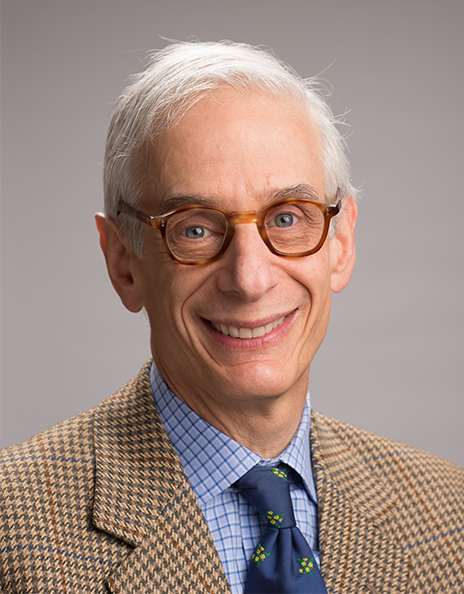Former Vice Chancellor for Research Randy H. Katz
 Randy H. Katz served as Vice Chancellor for Research from 2017 through 2021. With overall responsibility for UC Berkeley’s research endeavor, he provided primary leadership in research policy, planning, and administration, including relations between the university and industry, research compliance, research communications, and research support for the Berkeley campus. His administrative portfolio included management of over fifty campus research units, twelve research museums and remote field stations, and research administration offices including the Office of Research Administration and Compliance, the Office of Intellectual Property & Industry Research Alliances (IPIRA), and the Office of Laboratory Animal Care.
Randy H. Katz served as Vice Chancellor for Research from 2017 through 2021. With overall responsibility for UC Berkeley’s research endeavor, he provided primary leadership in research policy, planning, and administration, including relations between the university and industry, research compliance, research communications, and research support for the Berkeley campus. His administrative portfolio included management of over fifty campus research units, twelve research museums and remote field stations, and research administration offices including the Office of Research Administration and Compliance, the Office of Intellectual Property & Industry Research Alliances (IPIRA), and the Office of Laboratory Animal Care.
Randy Howard Katz received his undergraduate degree from Cornell University (1976), and his M.S. (1978) and Ph.D. (1980) degrees from the University of California, Berkeley. After a year in industry and two years at the University of Wisconsin-Madison, he joined the Berkeley faculty in 1983. Since 1996 he has been the United Microelectronics Corporation Distinguished Professor in Electrical Engineering and Computer Science. On January 1, 2018, he was appointed as the Vice Chancellor for Research at UC Berkeley.
He is a Fellow of the Association for Computing Machinery (ACM), the Institute of Electrical and Electronics Engineers (IEEE), and the American Association for the Advancement of Science, and a member of the National Academy of Engineering and the American Academy of Arts and Sciences. In 2007, he received an honorary doctorate from the University of Helsinki, and in 2011, the Public Service Medal (Pingat Bakti Masyarakat), presented by the President of Singapore.
He has published over 350 refereed technical papers, book chapters, and books. His introductory computer engineering textbook, Contemporary Logic Design, has sold over 100,000 copies in two editions, and has been used at over 200 colleges and universities. He has supervised 57 M.S. theses and 46 Ph.D. dissertations (including one ACM Dissertation Award winner). He has received four test of time (including the triple winning RAID paper) and sixteen best paper awards, and three best presentation awards. His academic recognitions include the Computer Science Division's Diane S. McEntyre Award for Excellence in Teaching, the Jim and Donna Gray Faculty Award for Excellence in Undergraduate Teaching, the Berkeley Academic Senate Distinguished Teaching Award, the ASEE Frederic E. Terman Award, the IEEE James H. Mulligan Jr. Education Medal, the ACM Karl V. Karlstrom Outstanding Educator Award, the IEEE Reynolds Johnson Information Storage Award, the ACM Sigmobile Outstanding Contributor Award, the Outstanding Alumni Award of the Computer Science Division, the CRA Outstanding Service Award, and the Air Force Exceptional Civilian Service Decoration.
In the late 1980s, with colleagues at Berkeley, he developed Redundant Arrays of Inexpensive Disks (RAID), a $15 billion per year industry sector. On secondment to DARPA in 1993-1994, he established whitehouse.gov and connected the White House to the Internet. His current research interests are data analytics from distribute sensors and actuators (RISELab) and Smart Cities through Intelligent Energy/Buildings/Transportatio
